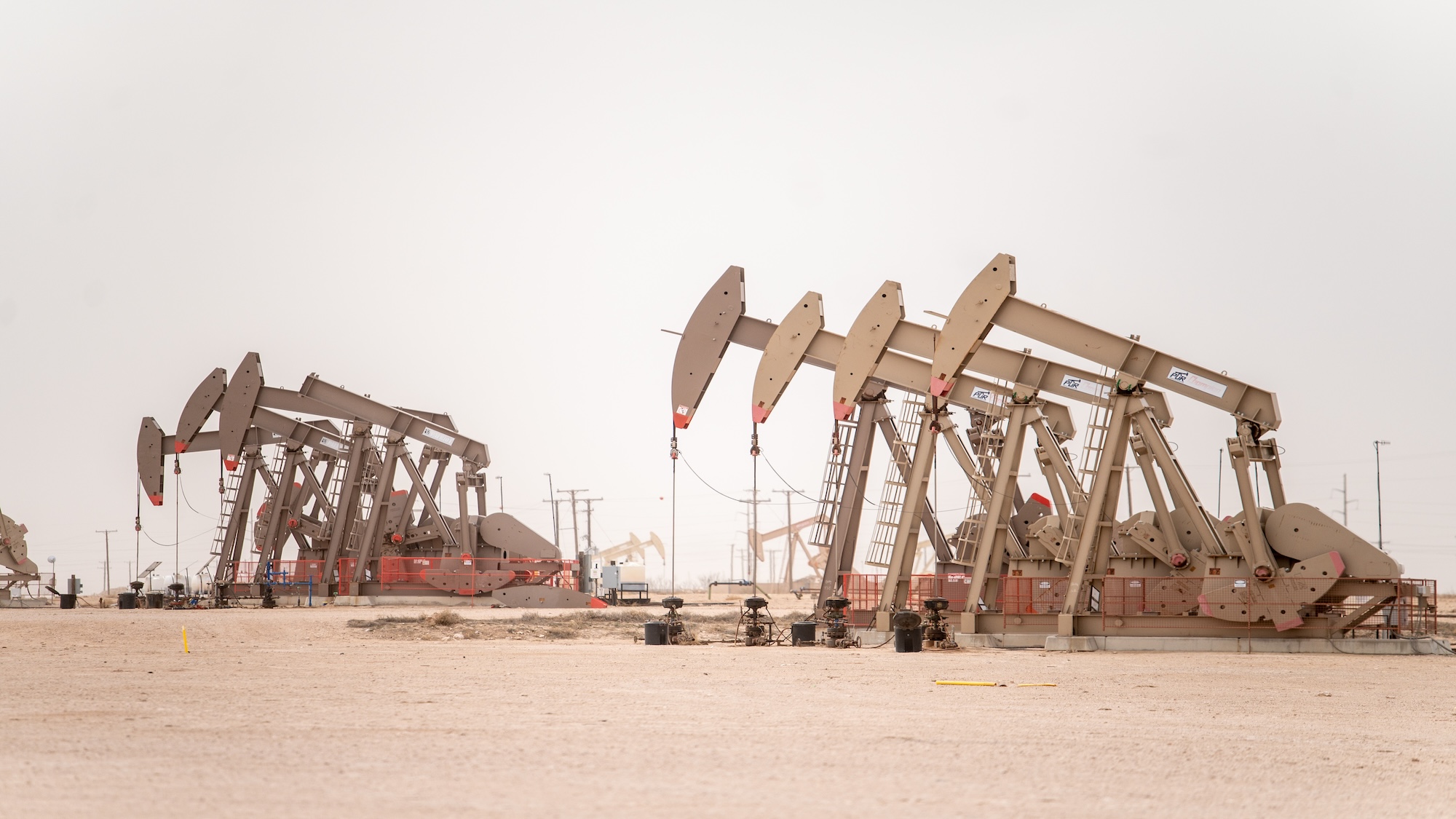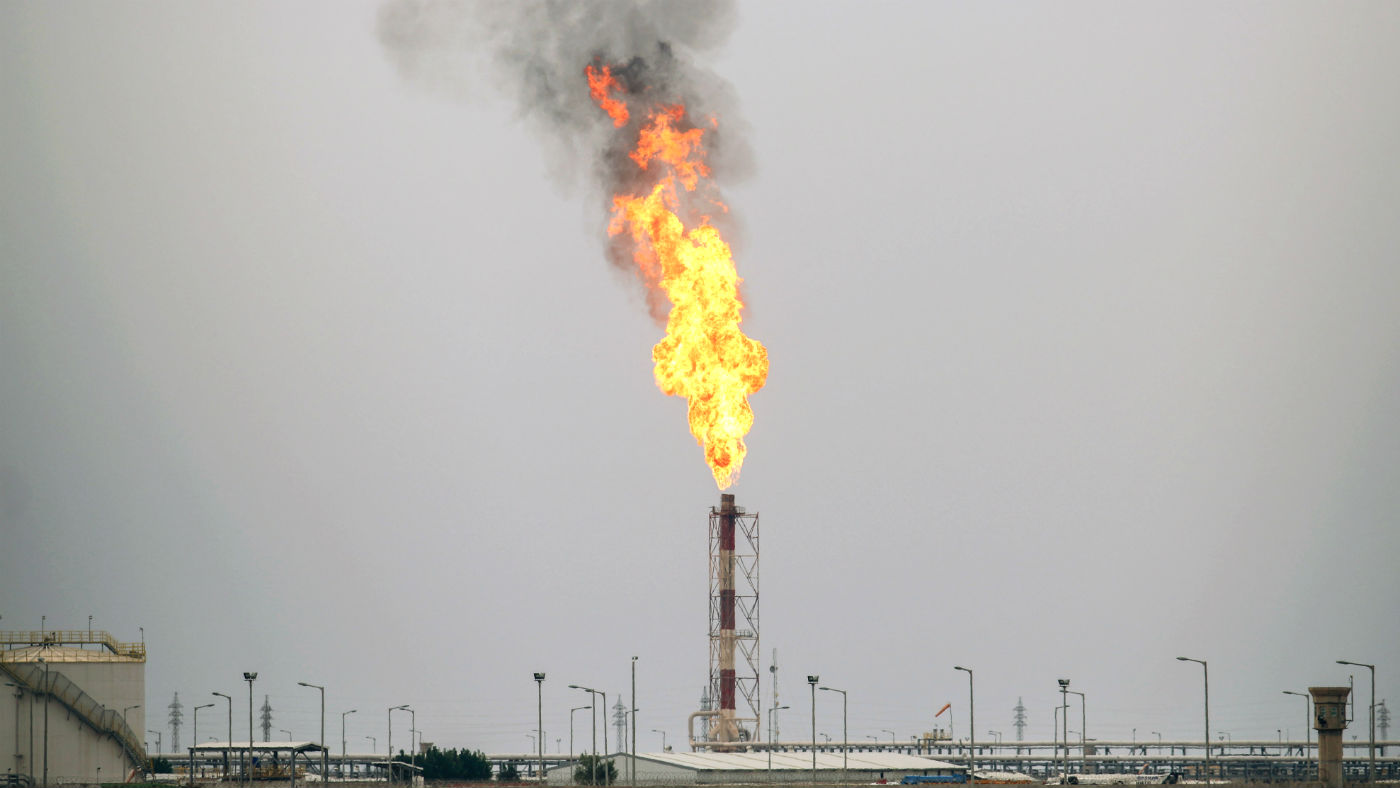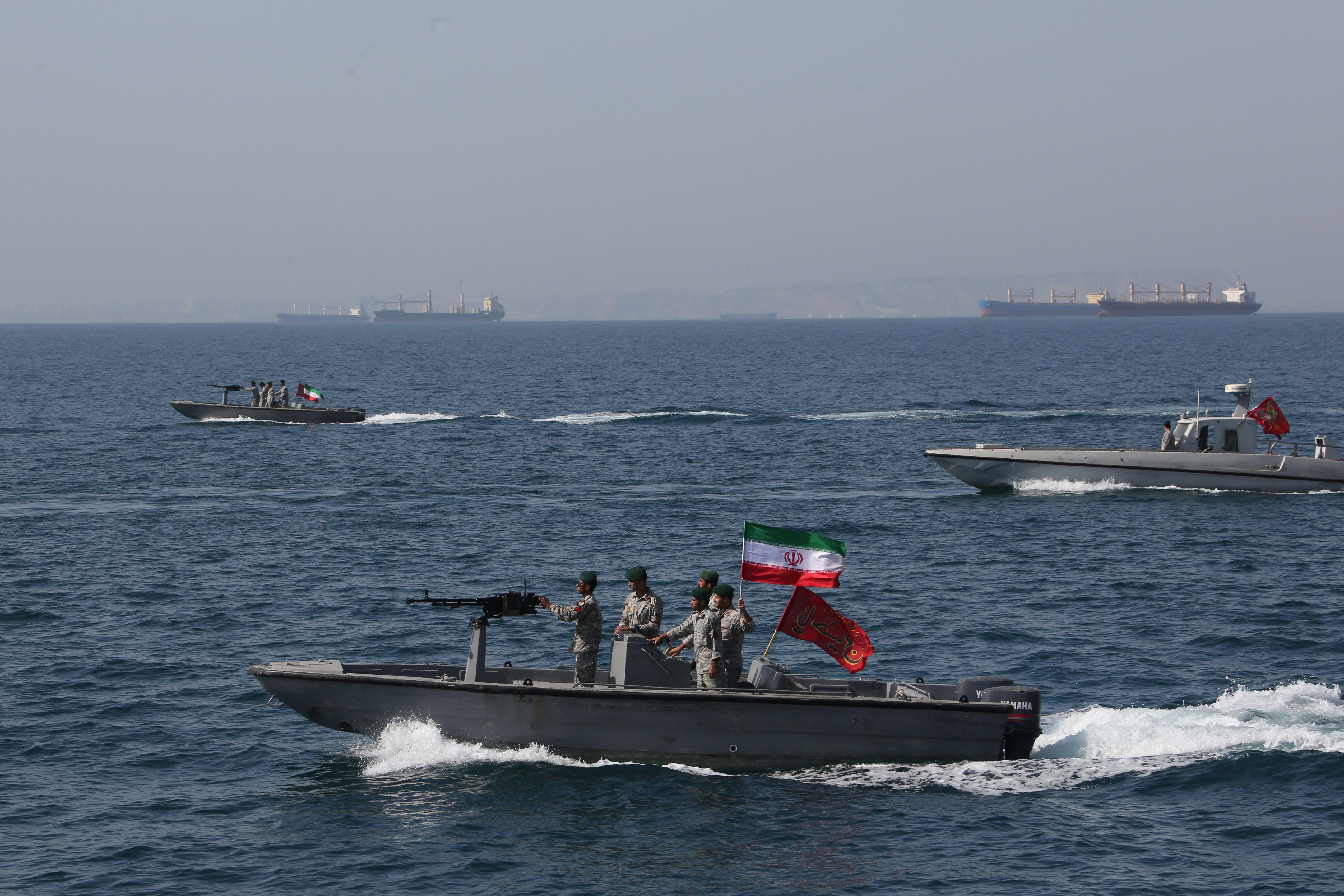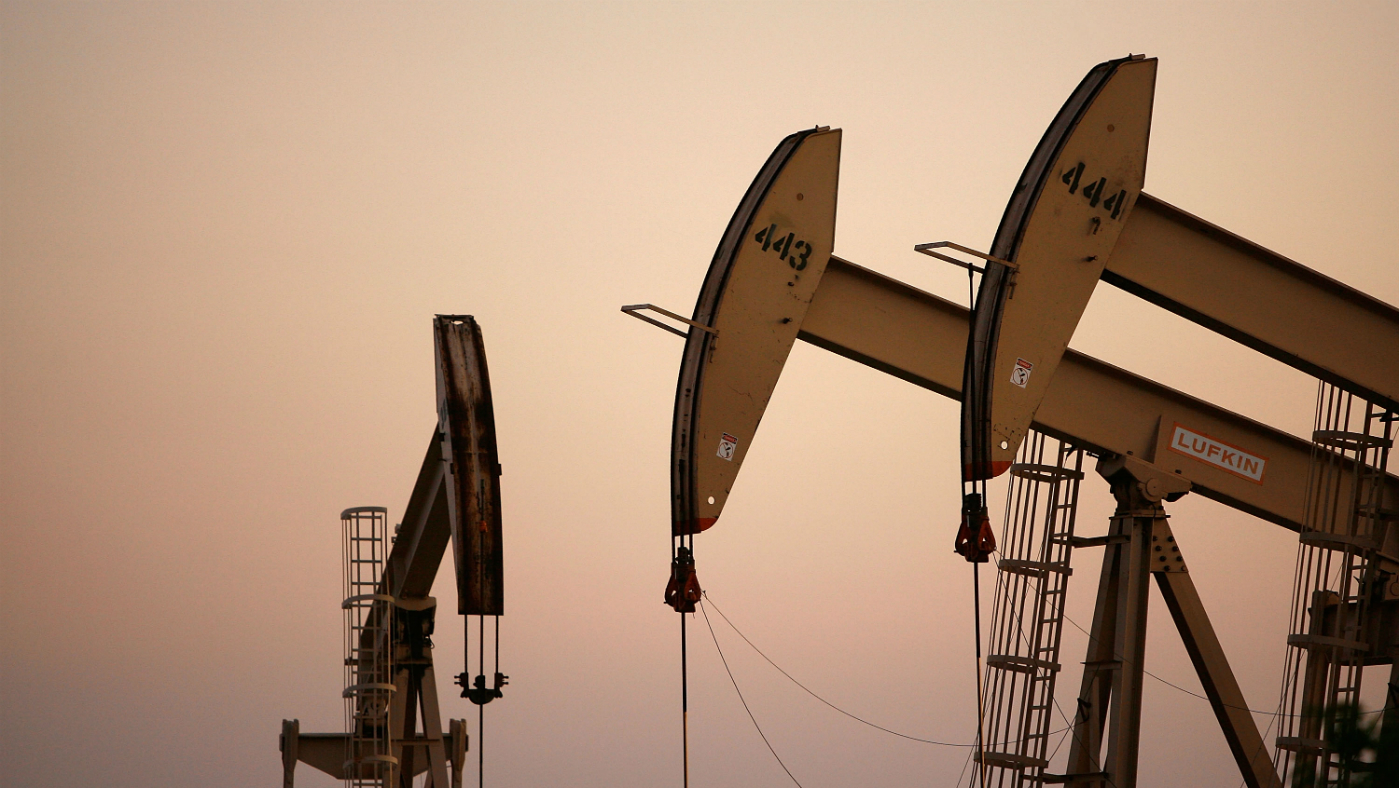Oil price posts two-year highs - but how long can it last?
Brent rose above $59 a barrel this week, its best third-quarter showing since 2004

A free daily email with the biggest news stories of the day – and the best features from TheWeek.com
You are now subscribed
Your newsletter sign-up was successful
Oil price: can Opec rebels halt the slump?
21 August
Several countries within the 12-nation oil cartel Opec are calling for changes to help reverse a dramatic oil price slide that has pushed some members to the brink of bankruptcy.
The Wall Street Journal reports that Algeria has written to the bloc's secretariat "complaining oil prices have sharply declined since the group decided to keep its ceiling unchanged at a meeting in June". It is thought he letter didn't go as far as calling for an emergency meeting or a production cut, which would be the most effective way to reverse the current slump.
The Week
Escape your echo chamber. Get the facts behind the news, plus analysis from multiple perspectives.

Sign up for The Week's Free Newsletters
From our morning news briefing to a weekly Good News Newsletter, get the best of The Week delivered directly to your inbox.
From our morning news briefing to a weekly Good News Newsletter, get the best of The Week delivered directly to your inbox.
The Daily Telegraph says that other members are also vocal in their criticism of a strategy that allows Saudi Arabia to produce a third of Opec's targeted total output and is contributing to a global production surfeit far in excess of demand. It says Opec's secretary general, Abdulla Salem el-Badri, "has spoken to Saudi officials on behalf of members".
In June Opec voted to keep production at 30 million barrels per day. According to the Financial Times it actually produced 31.5 million barrels a day in July, but demand for the cartel's crude this year is "forecast at only 29.2m" barrels. Saudi Arabia in particular is keen to maintain market share in the face of increased production in the US and Canada. A looming increase in output from Iran if and when sanctions are lifted is set to make matters even worse.
Brent crude is tumbling towards its January 2015 low of $45, and was down 2.3 per cent on Friday in London to $45.55 a barrel.
According to the International Monetary Fund, Algeria needs prices at $121 a barrel to cover its state spending plans, which an RBC analyst told the Journal "remains key for social stability". Venezuela and Nigeria are on the brink of bankruptcy, while Gulf states are having to prop up revenues from cash reserves, although in the case of Saudi Arabia these are extensive.
A free daily email with the biggest news stories of the day – and the best features from TheWeek.com
Oil price: seven-month low on shock stockpile surge
20 August
A renewed oil price slump is showing no signs of letting up after a shock report revealed that a surge in crude oil reserve stockpiles has sent US prices spiralling to a six-year low. The international Brent crude benchmark is also at its lowest level since its January nadir.
The International Energy Agency revealed on Wednesday that US reserves had increased by 2.6 million barrels, "upending analysts' beliefs that stocks would decline", according to the Financial Times. Despite a rise in consumption during the peak holiday season on the back of lower prices for petrol (and marginally lower domestic production), a sizable increase in imports has added to the existing glut. The situation is unlikely to improve as demand wanes with the onset of autumn.
[[{"type":"media","view_mode":"content_original","fid":"83909","attributes":{"class":"media-image"}}]]
US benchmark West Texas Intermediate crude plunged more than $2 a barrel on Wednesday to $40.60, a level not seen since early 2009. Brent crude fell by a similar margin to $46.80 and remains below $47 on Thursday morning. Brent bottomed out in mid-January at $45, pushing petrol towards £1 a litre briefly in the UK before global prices began to recover.
Analysts at Citi told the FT it is now a "conceivable reality" that US oil would return to a previous low of $32 hit at the height of the 2008 financial crisis.
The Daily Telegraph notes the bearish mood was further enhanced by the IEA substantially lowering its forecast for prices for 2015 and 2016, not least due to economic sanctions on Iran being lifted and the country ramping up its exports into an already saturated market. West Texas Intermediate "will trade at around $49 per barrel in 2015 and recover only slightly to $54 per barrel in 2016" it said, a "$6 and $8 revision on its previous forecasts".
Sentiment is also not being helped by growing concern over the health of the Chinese economy, which many fear could result in reduced demand from the world's second largest oil consumer that would only exacerbate the oversupply crisis.
Oil price: cuts could spark first walkouts 'in a generation'
18 August
Britain's North Sea oil production could be hit by the first mass worker walkouts for close to 30 years, paralysing the industry as anger grows at cost cuts introduced in response to plunging oil prices.
The Times reports that union bosses are to begin counting votes following a ballot on strike action among helicopter pilots, "who play a critical role ferrying workers and supplies to offshore rigs". While this would be disruptive in itself, it could also prove to be a precursor to more widespread withdrawal of labour by the sector's 10,000 rig workers, after union members rejected a revised package of cost-saving measures that would extend on-rig periods to facilitate job cuts.
That would be the first mass action since the 1988 Piper Alpha fire, "when sit-ins were held amid calls for improved safety measures", and the first action in the wider UK oil sector since the disputes that closed the Grangemouth refinery in Edinburgh in 2013.
Rig workers "typically work for 14 days straight on an offshore rig before being permitted a 21-day break", but are being asked to "switch to working 21 days followed by a 21-day break", to allow oil producers to cut costs in response to the low oil price by reducing "the number of separate crews required to operate a rig from three to two".
Job cuts are already happening in the North Sea. Shell has confirmed that it cut 500 jobs this year and the BBC reports that Wood Group, which services rigs for many of the larger oil companies, revealed in its latest results a reduction of 1,000 roles.
It comes at a time when the global oil price, which stood at $115 in early summer last year, remains rooted below $50 a barrel and likely to fall further. Brent crude was down 0.55 per cent on Tuesday afternoon to $48.55.
-
 The EU’s war on fast fashion
The EU’s war on fast fashionIn the Spotlight Bloc launches investigation into Shein over sale of weapons and ‘childlike’ sex dolls, alongside efforts to tax e-commerce giants and combat textile waste
-
 How to Get to Heaven from Belfast: a ‘highly entertaining ride’
How to Get to Heaven from Belfast: a ‘highly entertaining ride’The Week Recommends Mystery-comedy from the creator of Derry Girls should be ‘your new binge-watch’
-
 The 8 best TV shows of the 1960s
The 8 best TV shows of the 1960sThe standout shows of this decade take viewers from outer space to the Wild West
-
 How might the Israel-Hamas war affect the global economy?
How might the Israel-Hamas war affect the global economy?Today's Big Question Regional escalation could send oil prices and inflation sky-high, sparking a worldwide recession
-
 Recent mega-mergers could signal a turning point for the US oil industry
Recent mega-mergers could signal a turning point for the US oil industryTalking Point Both Chevron and Exxon have recently spent billions to acquire smaller oil companies
-
 Has Saudi Arabia lost control of oil prices?
Has Saudi Arabia lost control of oil prices?Today's Big Question Kingdom goes it alone to cut production, risking tension with US and reigniting cooling inflation in Europe
-
 US angered by Opec+ oil cut
US angered by Opec+ oil cutSpeed Read Energy prices to rise further as producers slash supply by two million barrels a day
-
 Global oil demand forecast lowered for 2020 and 2021
Global oil demand forecast lowered for 2020 and 2021Speed Read IEA report says jet fuel demand remains the major source of weakness
-
 Are US-Iran tensions flaring again?
Are US-Iran tensions flaring again?In Depth Trump threatens military action over Twitter
-
 Can a deal be struck to raise oil prices?
Can a deal be struck to raise oil prices?In Depth Opec+ will convene today over video link in a bid to boost crude
-
 What do negative oil prices mean?
What do negative oil prices mean?In Depth Perfect storm of oversupply and storage shortages sees producers paying to get rid of US crude